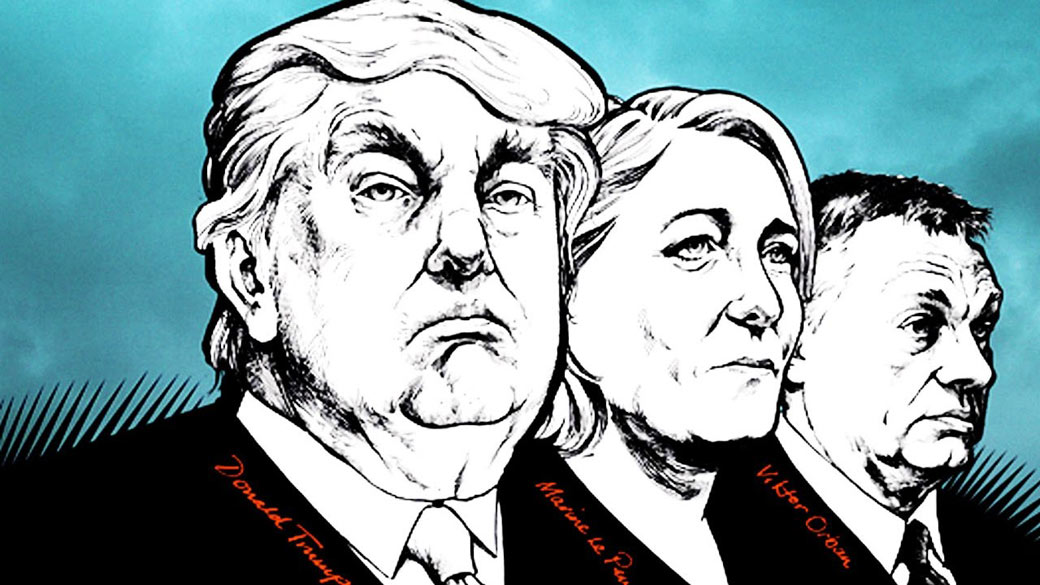
The recent U.S. election has had and will continue to have consequences at the international level. The results of this election will fundamentally change international relations. Consequently, politicians in certain countries are pleased with the results, while others are worried about their own political future.
There is no doubt that for various reasons over the last century, political shifts in the United States have influenced those in other countries. But in the recent election which will result in Donald Trump’s premature departure from the White House, the stakes were much higher. The importance of the election introduced new variables with respect to the presidential race, and presented a serious challenge for political analysts. Trump’s own personality and his effect on international political currents during his time in office were among the unique qualities which characterized this election.
Trump cannot be grouped together with establishment politicians who act predictably. In reality, Trump played the irrational actor in domestic and international politics. An irrational actor breaks all the normal rules of politics and brings about a new order. Withdrawing from the Iran nuclear deal and leaving the Paris climate agreement, cutting off payments to UNESCO, etc., was just his way of bringing about this new order. Yet his influence as an irrational actor didn’t stop there. His mere presence as president of the United States indirectly breathed new life into right-wing forces across the globe, emboldening these groups to take power.
We can trace Trump’s first successor to Latin America, in Brazil. It now seems that the extreme right-wing president of Brazil, Jair Bolsonaro, was the first inauspicious fruit of Trump’s rise to power in the U.S. But it didn’t stop there, and the list of Trump’s international peers has only grown over the last four years both in terms of where they are geographically and how many there are. A sample of people on this list can be seen in Eastern Europe from Hungarian President Viktor Orbán to Poland’s Prime Minister Mateusz Morawiecki.
The other end of Europe also found itself in a worrisome situation. Conditions were such that Austrian Chancellor Sebastian Kurz was left with no choice but to form a coalition government with extreme right-wing parties. The same can be said of Italy, where right-wing populists were able to rise to power with the appointment of Giuseppe Conte as prime minister. But perhaps the original warning bell sounded in Germany.
It all started when the extreme right-wing party Alternative for Germany, which has deep ideological ties to Nazi Germany, was able to win seats in the German parliament for the first time since World War II. The situation is not so different in France, where right-wing Marine LePen represents a serious threat for Emmanuel Macron. There have also been signs of the success of right-wing parties in Sweden and the Netherlands over the last four years.
Without a doubt the general success of right-wing groups is the result of Donald Trump’s coming to power in the U.S. He was able to mobilize warmongers, populists, racists and extremists across the world into a united front.
The interesting part is that Trump’s adversaries, like Iran, took a similar path. Trump’s actions resulted in the further radicalization of the political spheres in these countries and a turn to violent rhetoric. So on the one hand, Trump helped bring his own supporters in other countries to power, but on the other, his actions limited the potential of democratic forces within America’s adversaries. As Trump increased pressure on countries aligned against him, hard-liners in these countries got increasingly closer to power. Ultimately, Trump and his progeny across the world, be they opposed to him or aligned with him, were dragging the world closer to war and violence.
Given all this, Trump’s departure from the White House is not just the departure of a Republican from the institutions of power in the U.S. It could also be the start of the end of “Trumpism” in many countries. So maybe now we can look to the future with a bit more hope, but a future with Trump and his copycats in it would have undoubtedly been bleak.

Leave a Reply
You must be logged in to post a comment.